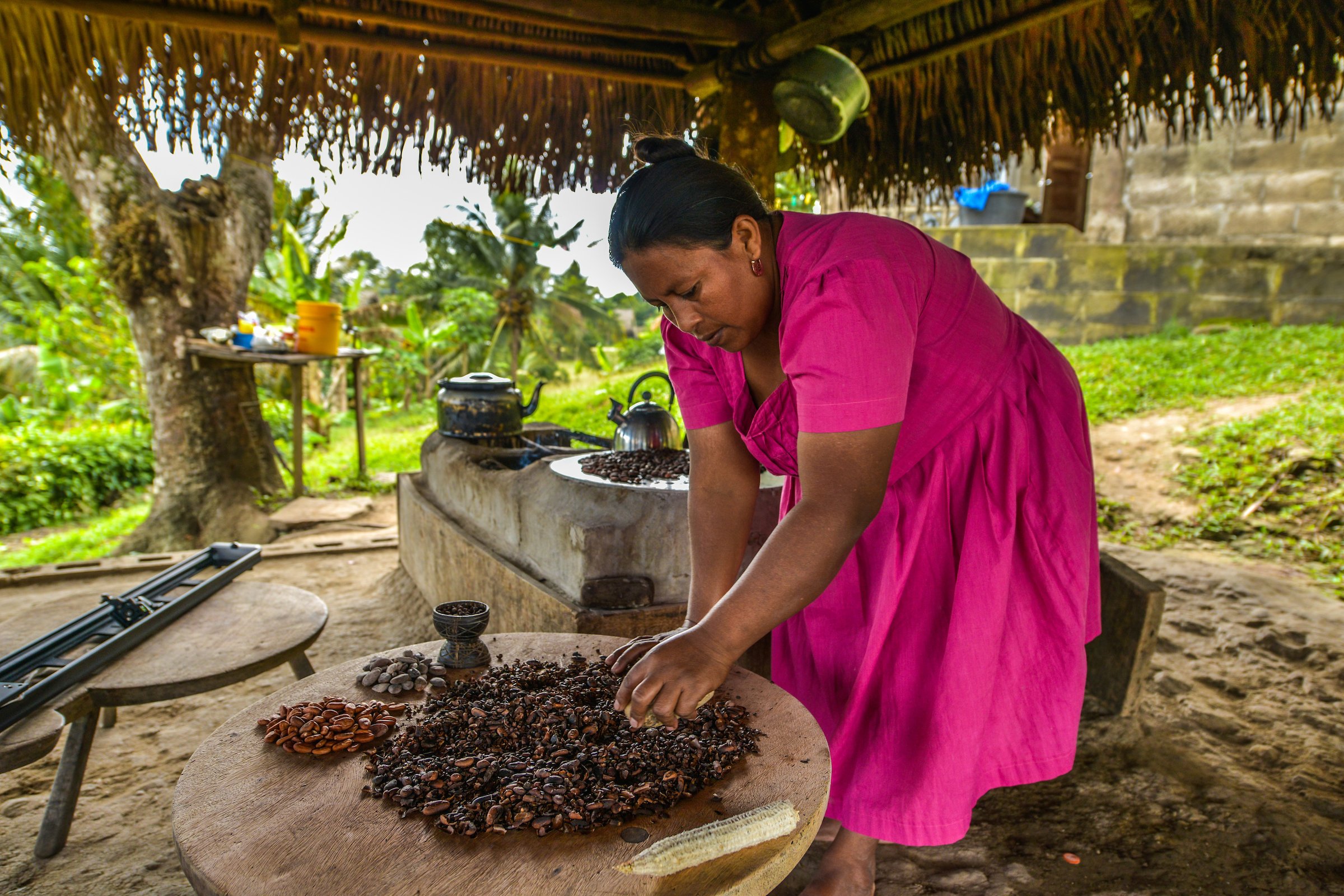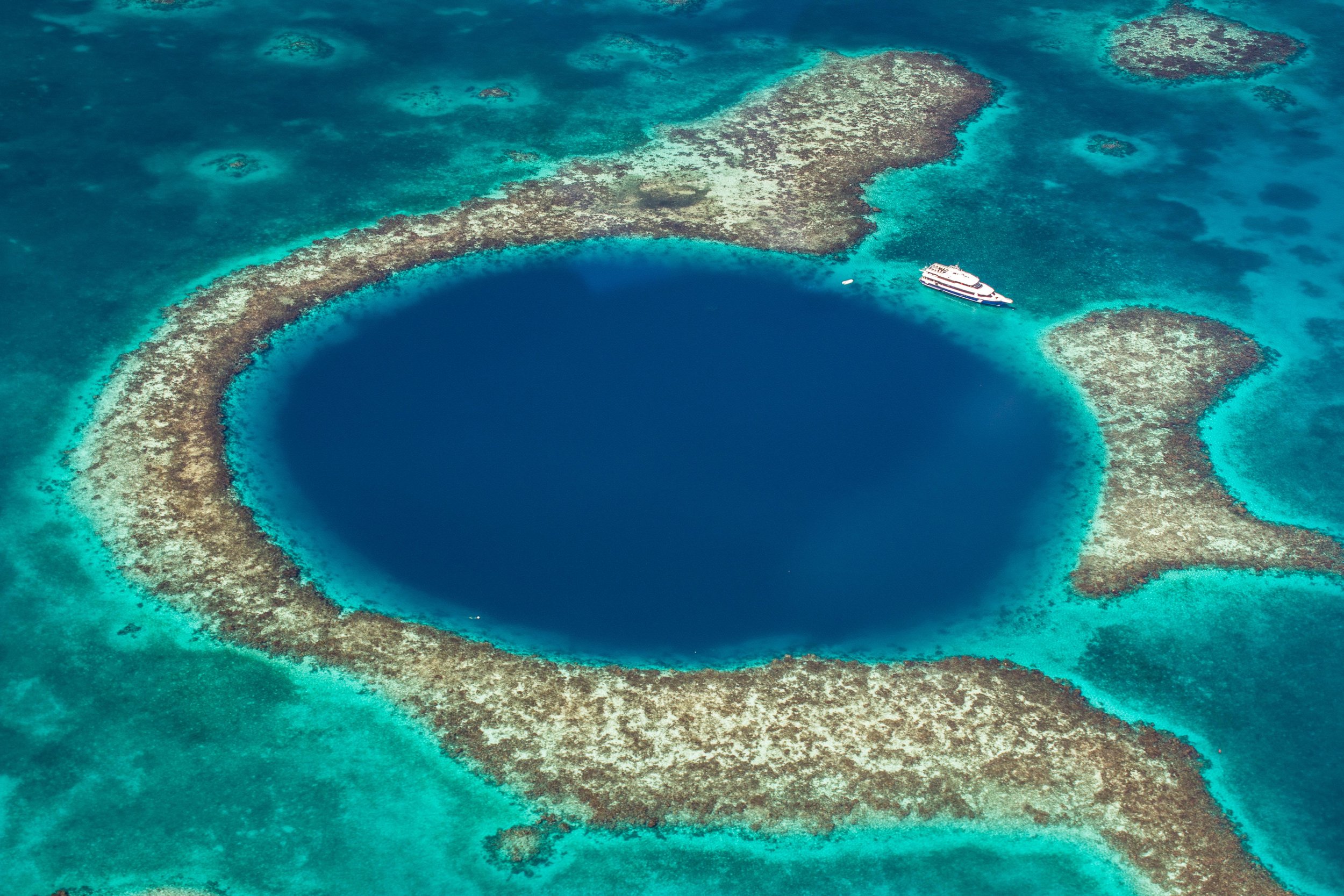Why Belize is R+W’s Top Sustainable Destination Choice
By Amanda Horn
When you travel with the desire to experience the world as nature intended, you must travel consciously. Seeking the picture-perfect moments of serenity: the clean, uncrowded, white sandy beaches and lush, vibrant tropical forests that stretch for miles; or diving into the pristine turquoise waters of the ocean, among bustling coral reefs teeming with marine life. These can only exist when a destination invests in initiatives that prioritize protecting, restoring, and preserving its natural resources and ecosystems. As tourists, we must acknowledge and actively support these efforts by responsibly interacting with them and being selective with our chosen destinations. This shift in consciousness is the first step towards creating a more sustainable future no matter where in the world we live, work or travel. Belize, the small but powerful leader in sustainability along the coast of Central America offers all these experiences.
“Blue by design, Belize is leading the way in eco-tourism, the branch of travel that celebrates and showcases the fact that nature knows best, allowing us to experience the elements in their purest forms.”
Tobacco Caye
Blue by design, Belize is leading the way in eco-tourism, the branch of travel that celebrates and showcases the fact that nature knows best, allowing us to experience the elements in their purest forms. This approach is designed to reduce and reverse the adverse effects of an influx of international travelers on the environment while maximizing the positive economic and social benefits of thriving tourism. Belize's blue economy's success is rooted in preserving its natural resources and highly biodiverse landscapes, providing jobs in hospitality for over 35% of Belizean people through independent hotels, fisheries, restaurants, dive travel, and tour operators. Although a small country, they have the most significant protected landmass and are the first in the world to successfully divide and establish governance over its territorial waters. Proving that responsibly managed access allows nature to regenerate and flourish.
“Belize’s blue economy’s success is rooted in preserving its natural resources and highly biodiverse landscapes, providing jobs in hospitality for over 35% of Belizean people through independent hotels, fisheries, restaurants, dive travel, and tour operators.”
Cacao Farm
The iconic Great Blue Hole, one of the world’s top five scuba diving sites, is one of the seven marine protected areas that make up the world’s second-largest coral reef, The Belize Barrier Reef. Spanning 300km of the Mesoamerican coast and the center of the country's social, economic, and environmental ecosystem, it is a prime example of its conscious efforts to restore and leverage the earth's most precious resource, the ocean. The Belize Barrier Reef was officially registered as a UNESCO World Heritage Site in 1996 and removed from the United Nations endangered places list in 2018. This year marks its 10,000th anniversary - a celebration of the collective impact of the actions and decisions made by the Belizean government and in-country organizations over the last decade.
Great Blue Hole
“The Belize Barrier Reef was officially registered as a UNESCO World Heritage Site in 1996 and removed from the United Nations endangered places list in 2018. This year marks its 10,000th anniversary - a celebration of the collective impact of the actions and decisions made by the Belizean government and in-country organizations over the last decade.”
The first of these substantial commitments occurred in 2009 when Belize made history as the first country to ban off-shore drilling and deep sea oil exploration. The end of this large-scale, exploratory, and destructive practice has allowed the reef to reset, leaving the seabed undisturbed and reducing the threat of oil spills throughout the marine protected area. As conservationists, divers, and snorkelers, you can see and feel the effect as life, colour, and energy have been breathed back into the corals. Here, many fish, rays, turtles, and endangered marine species, including sharks and manatees, have made it home.
Whale Shark
“The first of these substantial commitments occurred in 2009 when Belize made history as the first country to ban off-shore drilling and deep sea oil exploration. ”
Belize Barrier Reef
Beyond the abundant reef and into the blue, seafood is a sought-out delicacy among travellers and a primary source of food and income for the people of Belize. No-take zones create an abundance of fish on the reef. At the same time, designated replenishing areas have been established to allow for regulated fishing practices to minimize illegal activity. Implementing Fish Right, Eat Right, a sustainable seafood platform in 2016, brings together fishermen, fisheries, hotels, and restaurants, to take responsibility for transparent sourcing and service of seafood from the sea to your table.
“Implementing Fish Right, Eat Right, a sustainable seafood platform in 2016, brings together fishermen, fisheries, hotels, and restaurants, to take responsibility for transparent sourcing and service of seafood from the sea to your table.”
Shark Alley
From life on the reef to the protected wildlife corridors of the rainforests, underwater caves, or mangroves, Belize knows that one day eco-tourism will be referred to as just tourism, and, one destination at a time, the rest of the world will follow suit. As travellers, remember that choosing to travel sustainably does not mean uncomfortably or inconveniently. It is as simple as choosing the right destination and defining a purpose for your experience at home or away. By moving through the world with a heightened sense of awareness and consciousness we open ourselves up to better understand and appreciate what is here for us.
“Being a conscious traveler is as simple as choosing the right destination. ”
Coral Caye
A COMMITMENT TO CONSERVATION
Belize has committed to preserving a full 30% of its oceanic territory— over 10,000 square kilometers, including each of the seven marine protected areas shown below. Combined with other efforts like a total ban on single-use plastics taking effect in 2022, this has made Belize a leader in conservation in the Caribbean and, truly, the world.
Room + Wild is the leading content platform for landscape-enhanced architecture, ecotourism, nature-based destinations, and sustainable travel experiences. We work with extraordinary retreats all over the world to inspire, influence, and spread awareness of landscape architecture, environmental initiatives, and earth mindfulness.
About the Author
Amanda is an ocean advocate, SSI Divemaster, and entrepreneur. She advocates for the ocean by exploring the depths of the human-ocean connection through scuba diving, freediving, mindfulness, and marketing. Using creativity to design solutions to inspire people to reflect on the impact their everyday actions and decisions have on the ocean, she is the founder of the water-responsible blue beauty brand, Loless, creating the next wave of eco-conscious consumers.












